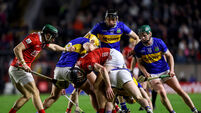Bush: Give my Iraq plan a chance
A politically-weakened George Bush implored a sceptical Congress to embrace his unpopular plan to send more US troops to Iraq, saying it was the best chance in a war the US must not lose.
“Give it a chance to work,” the US president said.














